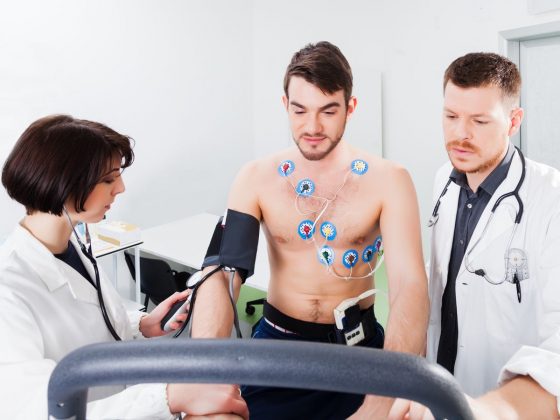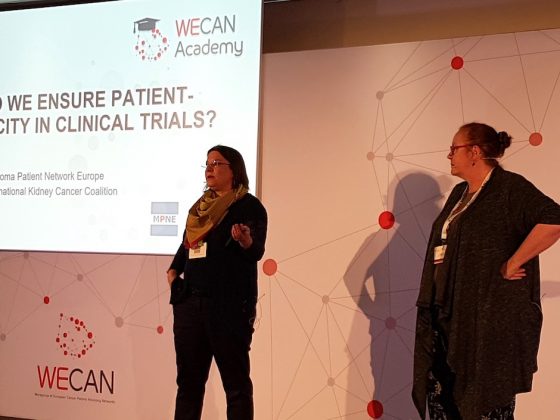A transcriptional signature of 21 genes has been found to occur across patients with paediatric B-cell acute lymphoblastic leukaemia who have durable responses and long-lived CAR T cells. The UK study, published online in Nature Medicine, July 6, did not identify the signature in non-CAR T cells from the same patients, but did find it in the CAR T cells of two adult patients with chronic lymphocytic leukaemia who had durable CAR T cell responses.
“We found that the same genetic signature for long-lived CAR T cells existed across both a paediatric population with B ALL [B-cell acute lymphoblastic leukaemia] and two adults from an entirely different US study with CLL [chronic lymphocytic leukaemia]. These findings suggest that we have identified a universal transcriptional signature that could ultimately be utilised to optimise CAR T treatments,” Nathaniel Anderson, the lead author from the Wellcome Sanger Institute, Cambridge, told Cancerworld. “We hope that our research will provide the first clue as to why some CAR T cells last for a long time – which we know is vital for keeping people cancer-free after treatment.”
In CD19 chimeric antigen receptor (CAR) T cell therapy, blood is taken from a person with cancer, and their T cells are separated out, which are then genetically changed to attach to a specific protein on cancer cells. After the number of CAR T cells has been expanded, they are infused back into the same patient. One of the key factors that determines whether the treatment will lead to a long-lasting remission when treating acute lymphoblastic leukaemia is known to be the length of time that the CAR T cells last in the body. Until now, however, little has been known about what makes these cells last in the body, making it hard to predict whether the treatment is likely to work long-term without further therapy. Although a subset of children with acute lymphoblastic leukaemia can be cured by CAR T cell therapy, up to 60% of them experience therapy failure, including relapse, with a need for further therapy due to non-persistence of CAR T cells.
To start building up a picture of why some CAR T cells stay in the body long term, the team from Great Ormond Street Hospital, the Wellcome Sanger Institute and the University College London (UCL) Great Ormond Street Institute of Child Health worked with 10 patients enrolled in the CARPALL study, undergoing treatment for B-cell acute lymphoblastic leukaemia with a novel CAR T cell therapy (known as AUTO1).
First, they took patient blood samples that had been frozen during three time intervals after CAR T cell infusion: an early window (defined as 0–3 months following infusion), an intermediate window (4–6 months), and a late window (7 months to 5 years). The CAR T cells were selected out using flow cytometry, allowing the investigators to use single cell sequencing technology to identify RNA sequencing. Additionally, they sampled the background cells that had been exposed to the CAR T cells in both blood and bone marrow.
Results showed that, in the late window (7 months to 5 years), all the CAR T cells showed the same 21 gene signature, including TIGIT and GPR183, as well as genes with currently unknown or emerging roles in immune biology, such as FXYD2, HMOX1 and DENND2D.
Examination of the background cells and also single T-cell transcriptomes from a wide range of healthy and diseased tissues across children and adults did not reveal this signature.
However, using the same technology, the team detected the same CAR T cell signature in blood from two adult patients who had achieved decade-long remissions from chronic lymphocytic leukaemia after receiving a different CAR T cell product in an independent US study.
“This data for the first time shows us the characteristics of long-lasting CAR T cells which are responsible not just for curing children with ALL in our study but also seen in adults treated with a different CAR T cell product for a different type of leukaemia,” says Sara Ghorashian, the co-senior author, a Consultant in Paediatric Haematology at Great Ormond Street Hospital, and Honorary Senior Clinical Lecturer at the UCL Great Ormond Street Institute of Child Health.
“We have not found these combinations of genes in a normal physiological context, leading us to believe that they may arise as a result of the CAR T manufacturing process, chronic antigen exposure or on-going interactions with the microenvironment,” adds Anderson.
Going forward, the team hopes the signature can be used as a biomarker to predict the long-term durability of CAR T cell therapies in individual patients, and also to unlock the mechanisms of CAR T cell persistence. “We now have a spotlight put on genes that hitherto did not have a known immune function and can start to explore what they are doing to support persistence,” says Ghorashian.
Next, the team plan to start genetically manipulating genes in the CAR T cell signature in both in vitro and animal studies to explore the effects on CAR T cell longevity.
The results could also have an influence on the composition of future CAR T cell therapies. “In the past there has been a lot of dogma around what long-persisting CAR T cells might look like, with the inference that these T cells would be stem-cell-like in their properties. Whilst they may arise from such early memory T cells, their functional status after infusion did not at all resemble this. Our results provide a strong basis with which to investigate their mechanisms of persistence,” says Ghorashian.












